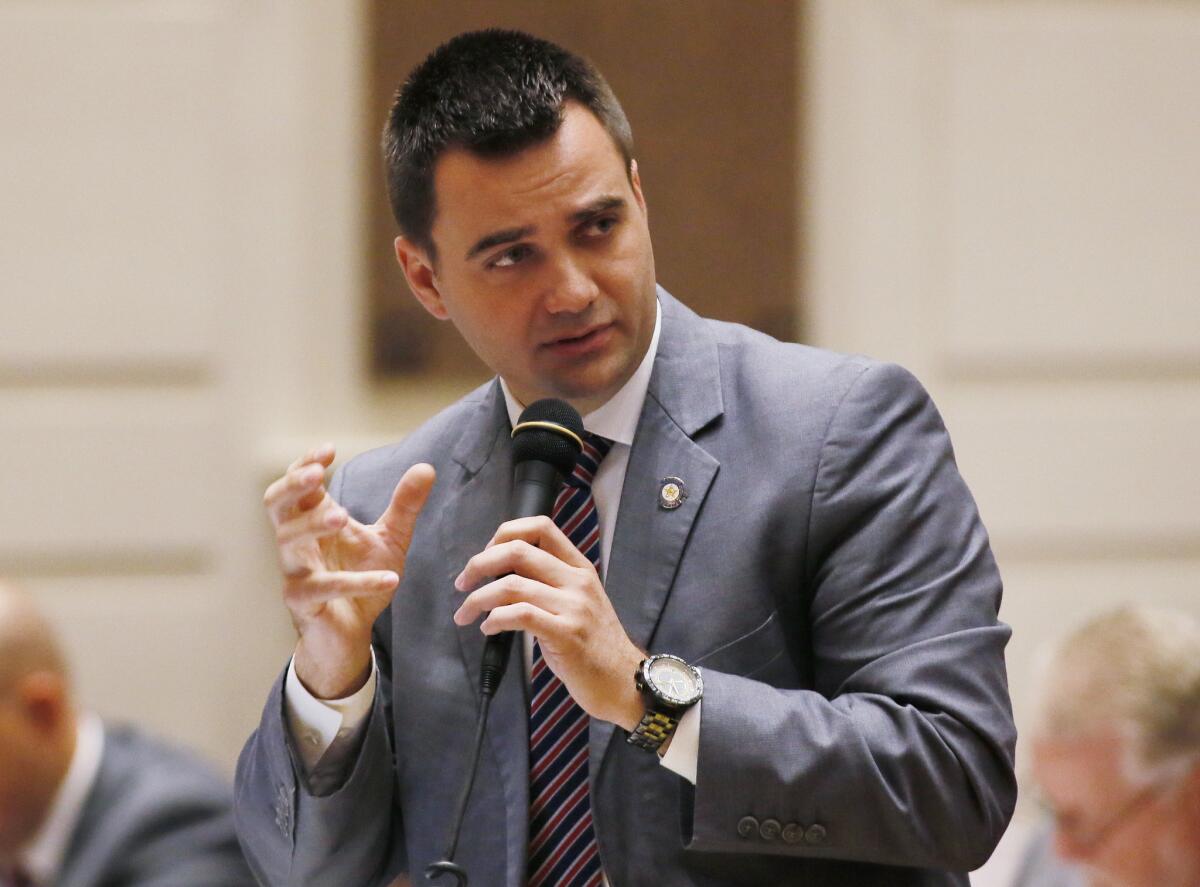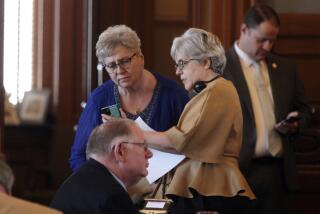Oklahoma governor vetoes bill that would make performing abortions a felony

Oklahoma Gov. Mary Fallin has vetoed a measure that would have effectively banned abortion, the latest and most extreme state restriction in the nation.
The law passed Thursday by the state’s Republican-dominated Senate would have made performing abortions a felony punishable by up to three years in prison.
It would also have barred doctors who perform abortions from obtaining or renewing their medical licenses in Oklahoma, unless they did so to save the life of the mother.
See more of our top stories on Facebook >>
“The bill is so ambiguous and so vague that doctors cannot be certain what medical circumstances would be considered ‘necessary to preserve the life of the mother,’” the Republican governor said in a statement.

“The absence of any definition, analysis or medical standard renders this exception vague, indefinite and vulnerable to subjective interpretation and application.”
Fallin said that she, like the bill’s sponsor, wants the U.S. Supreme Court to reconsider the landmark abortion decision Roe vs. Wade, but added: “This legislation cannot accomplish that reexamination.”
She called instead for “the appointment of a conservative, pro-life justice to the United States Supreme Court.”
NEWSLETTER: Get the day’s top headlines from Times Editor Davan Maharaj >>
Fallin had five business days to veto the measure before it automatically became law, set to take effect in November. The Legislature could still override her veto.

“Her veto message is just an excuse for not being willing to stand up for life,” said Republican state Sen. Nathan Dahm, a software developer who sponsored the legislation.
He said discussions are expected to continue Monday. While it may be difficult to summon enough votes in the Oklahoma House for a veto override, with some concerned about stalling budget negotiations or alienating the governor, Dahm said, “We could possibly save lives here in Oklahoma.”
He said he hopes the law will pass and lead the U.S. Supreme Court to reconsider Roe vs. Wade.
Nancy Northup, president and chief executive of the New York-based Center for Reproductive Rights, whose attorneys represent clinics in Oklahoma, said Fallin “did the right thing today in vetoing this utterly unconstitutional and dangerous bill.”
“It’s time the rest of Oklahoma’s elected officials follow Gov. Fallin’s lead today and stop policing women’s most personal, private decisions about their families, their lives, and their futures.”
The state has two abortion clinics and reported 4,487 abortions statewide in 2014, the most recent figures available from Oklahoma’s Health Department.
The proposal is only the latest in a wave of state-level abortion restrictions in the U.S. this year.
Earlier this week, South Carolina legislators banned women from obtaining abortions at 20 weeks or later, even if they are victims of rape or incest. Sixteen other states have passed similar legislation.
A case concerning whether Texas abortion restrictions impose an undue burden on women is pending before the Supreme Court, with a ruling expected next month.
ALSO
Human remains and wreckage from EgyptAir Flight 804 found in Mediterranean
Taiwan’s new president says she’s willing to talk to Beijing
North Korea is building something other than nukes: Architecture with some zing
molly.hennessy-fiske@latimes.com
UPDATES:
7:55 p.m.: Updated with comments from the measure’s sponsor, state Sen. Nathan Dahm; and from Nancy Northup, head of the Center for Reproductive Rights.
This story was originally posted at 2:58 p.m.
More to Read
Start your day right
Sign up for Essential California for news, features and recommendations from the L.A. Times and beyond in your inbox six days a week.
You may occasionally receive promotional content from the Los Angeles Times.







